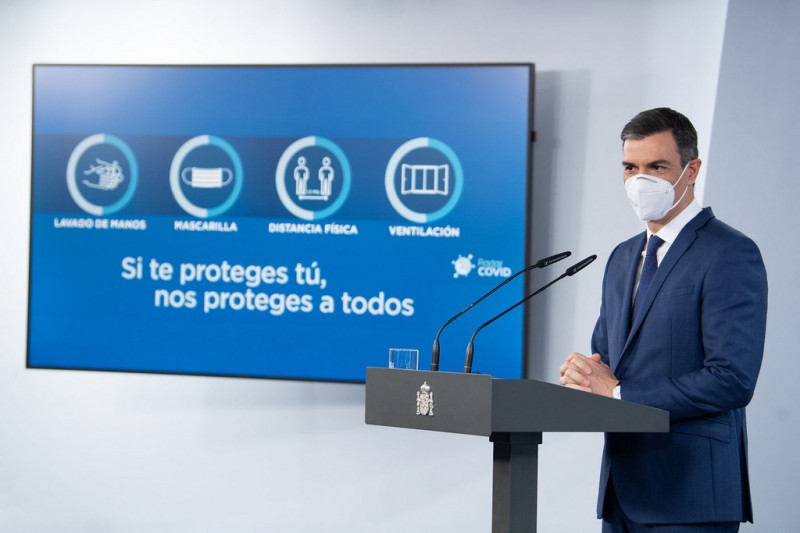article_detail
Date Published: 27/12/2021
ARCHIVED - Can the Spanish government impose strict Covid restrictions over the holidays?
After the reintroduction of mandatory masks in Spain, many are wondering what comes next

With Covid cases on the increase across Spain and the country right in the middle of the festive season, the national government is surely debating what can be done to decrease the number of cases and ease pressure on the Health system.
Since the second state of alarm was lifted on June 9, the country has been in a progressive state of de-escalation, but now, a new wave of coronavirus is gripping Spain and national and regional authorities have taken steps to reduce cases, including reintroducing mandatory masks in outdoor spaces.
Some autonomous communities have also taken further steps to reduce the risk of transmission, including Cataluña, the Canary Islands, Cantabria and the Region of Murcia, where the regional government recently imposed a 1am curfew for all non-essential businesses.
But, how far can the government take the restrictions without declaring another state of alarm? The answer varies depending on the measure, for example, the mandatory mask rule was included in the Law of urgent prevention, containment and coordination measures approved in February 2021, so the government can simply modify this Law with royal decree-laws, which is why the president has been able to reintroduce this measure.
However, other restrictions, such as curfews or limited opening hours for businesses, aren’t regulated in state laws and cannot be changed by the national government without a state of alarm.
These measures can only be enforced by individual autonomous communities, which is why some regions have been able to introduce capacity restrictions and curfews for the hospitality sector. Local Town Halls also have some authority and are able to cancel municipal events and restrict capacity in public spaces.
On the other hand, the Spanish government do have one tool to unify measures across the country: the Interterritorial Health Council. This council allows autonomous communities to vote on anti-Covid restrictions and the agreement reached by the majority is then made obligatory for all of the autonomous communities.
This process is how the government were able to restrict mobility in certain municipalities with a high number of Covid cases during September 2020, before the second state of alarm was declared.
So, to summarise, the Spanish government is not able to apply harsh restrictions over the New Year’s and Three Kings celebrations; this decision lies with each individual region and, in extreme cases, with the Interterritorial Health Council.
Image: Archive
Loading
Read more about Coronavirus:
OR
Sign up for the Spanish News Today Editors Roundup Weekly Bulletin to get a comprehensive email with all the week’s news for Spain, Murcia, Alicante and Andalucía.
Get a sneak peek – here are a few of our recent Subscription Bulletins:
50% Discount Special Offer subscription:
24.95€ for 48 Editor’s Weekly News Roundup bulletins!
Please CLICK THE BUTTON to subscribe.
Contact Spanish News Today: Editorial 966 260 896 /
Office 968 018 268



























